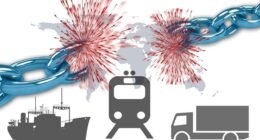In recent years, the discourse on sustainability has evolved beyond mere environmental concerns to encompass social and economic dimensions, intertwining with the future of work in profound ways. As we navigate the complexities of a changing global landscape, understanding this intersection becomes paramount for businesses, policymakers, and individuals alike.
The Evolution of Sustainability
Sustainability, at its core, is about meeting the needs of the present without compromising the ability of future generations to meet their own needs. Initially focused on environmental conservation and resource management, it has expanded to include social equity and economic viability. Today, sustainable practices are seen as essential for mitigating climate change, preserving biodiversity, and ensuring social justice.
Impact on the Future of Work
The future of work is undergoing a seismic shift driven by technological advancements, demographic changes, and shifting societal expectations. Sustainability is emerging as a key driver influencing workplace dynamics:
- Green Jobs and Industries: The transition towards sustainability has spurred the growth of green industries such as renewable energy, eco-friendly construction, and sustainable agriculture. These sectors not only create employment opportunities but also contribute positively to the environment.
- Corporate Responsibility: Companies are increasingly expected to integrate sustainability into their core operations. This includes reducing carbon footprints, adopting circular economy principles, and promoting ethical supply chains. Such initiatives not only enhance corporate reputation but also attract talent who prioritize environmental and social responsibility.
- Flexible Work Arrangements: Sustainability encourages flexible work arrangements such as remote work and virtual collaboration, which reduce commuting-related emissions and promote work-life balance. The COVID-19 pandemic accelerated this trend, highlighting the feasibility and benefits of remote work.
- Skills for the Green Economy: As industries evolve towards sustainability, there is a growing demand for skills in areas such as renewable energy technology, environmental management, and sustainable finance. Educational institutions and training programs play a crucial role in preparing the workforce for these emerging opportunities.
Challenges and Opportunities
While the integration of sustainability into the future of work presents numerous benefits, it also poses challenges:
- Transition Costs: Implementing sustainable practices often requires upfront investments in technology, infrastructure, and workforce training.
- Policy Alignment: Effective policy frameworks are essential to incentivize sustainability initiatives and ensure equitable distribution of benefits across society.
- Behavioral Change: Achieving sustainability goals necessitates a shift in individual and organizational behaviors, which can be met with resistance or inertia.
However, these challenges are accompanied by significant opportunities:
- Innovation: Sustainability fosters innovation, leading to the development of new technologies, business models, and solutions that drive economic growth while minimizing environmental impact.
- Resilience: Companies that embrace sustainability are better positioned to mitigate risks associated with climate change, regulatory changes, and resource scarcity.
- Social Impact: By prioritizing sustainability, businesses can contribute positively to local communities, enhance employee satisfaction, and build resilient supply chains.
The convergence of sustainability and the future of work represents a paradigm shift towards a more equitable, resilient, and environmentally responsible global economy. Embracing sustainability not only ensures long-term environmental stewardship but also fosters inclusive economic growth and enhances societal well-being. As we navigate this transformative journey, collaboration among stakeholders—governments, businesses, civil society, and individuals—will be crucial in realizing a sustainable future where prosperity and environmental health go hand in hand.













